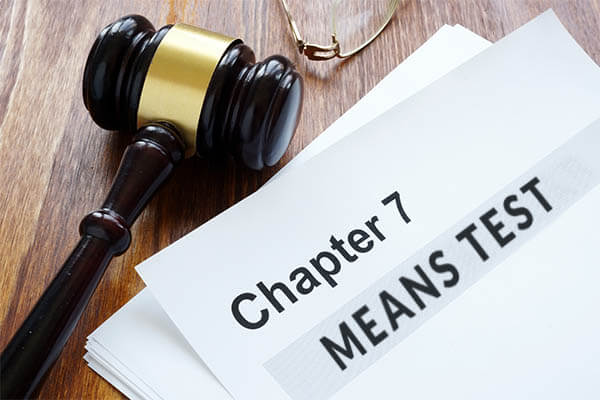
What is a bankruptcy means test?
Let’s be honest. Consumer bankruptcy is not a fun route to travel, but it can be necessary to settle your debts and start financially anew. In fact, filing for bankruptcy and settling debt can lift a great weight off of your shoulders.
Debt comes in many forms, like credit card debt, medical bills, overdue mortgage payments, and vehicle loans, and back taxes. Whether you incurred the debt because of excessive spending, divorce, unemployment, a medical procedure, or something else, it doesn’t matter. What matters is that you seek the financial help you need and deserve.
So which consumer bankruptcy option is best for your financial situation? That depends on the means test and a couple of economic factors.
How to pass the means test?
States use the means test to determine whether you or your family (if applicable) qualify for Chapter 7 (liquidation) bankruptcy. To resolve this, the test will ask you to provide your household income based on the past six months. The test will account for new employment or job loss as well. If your income is below the median level for your state. In New York, the median household income is around $65,000. If your income is below that threshold, you would automatically qualify for Chapter 7.
By filing for liquidation bankruptcy, you are stating that you do not have enough disposable income to repay a portion of your debts over time and wish to sell off your unsecured assets to repay your creditors.
What if you don’t pass the first section of the means test?
Suppose your household income exceeds the means test threshold, but you still wish to pursue liquidation bankruptcy. In that case, you must provide documentation showing how much you spend each month on allowable expenses (housing, groceries, clothes, medical costs, car payments). Once you provide those expenses, the state will determine your remaining disposable income. If your disposable income is too great, you should consider Chapter 13.
Why Chapter 13
If you have any disposable income that you can put toward debt repayment, Chapter 13 may be the way to go. Choosing reorganization bankruptcy allows you to keep your unsecured debts. Chapter 7 (liquidation) bankruptcy does not. Chapter 13 bankruptcy will enable you to restructure your debt and is often a more forgiving process.
Should you consider hiring a bankruptcy attorney?
Bankruptcy attorneys are professionally qualified to negotiate with creditors and navigate other legalities of the bankruptcy process. They can also be an invaluable asset in determining which course of action is best to achieve debt relief. Every bankruptcy situation is unique, and you must do what’s best for you and your family.

